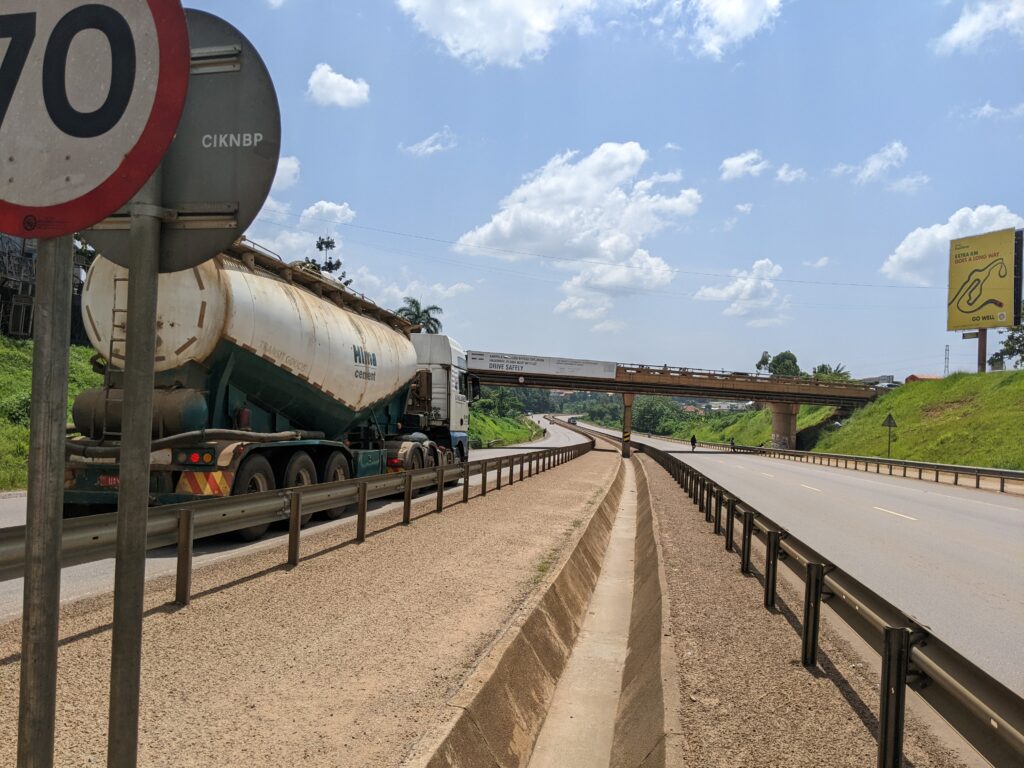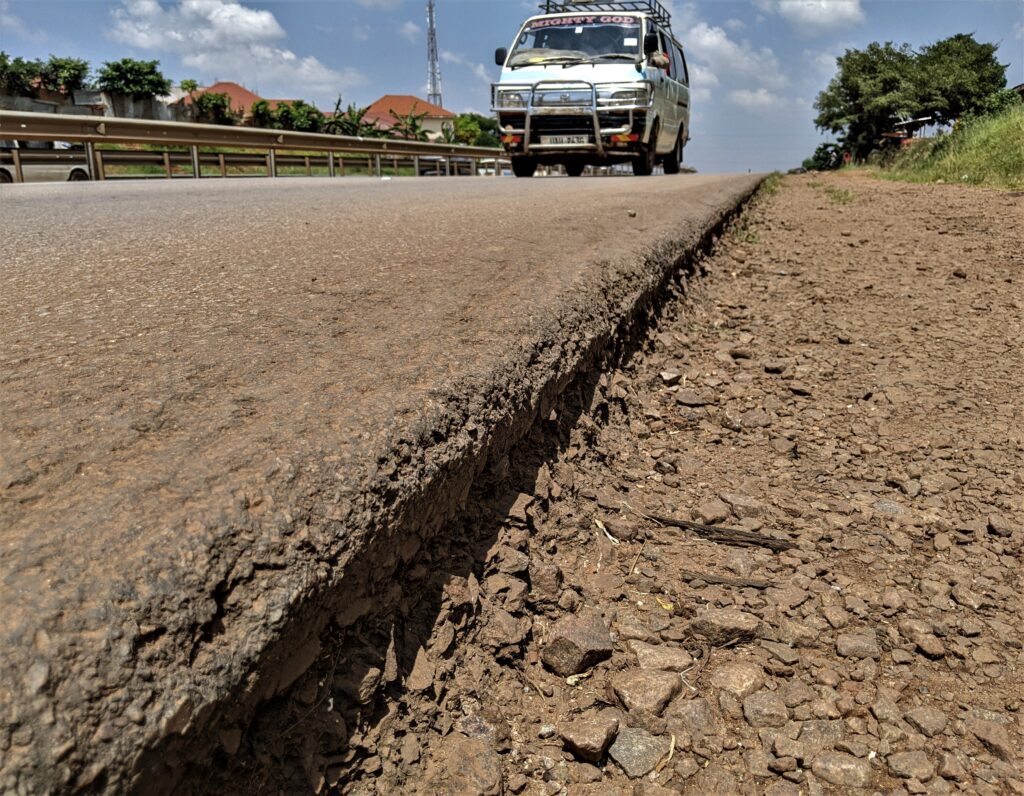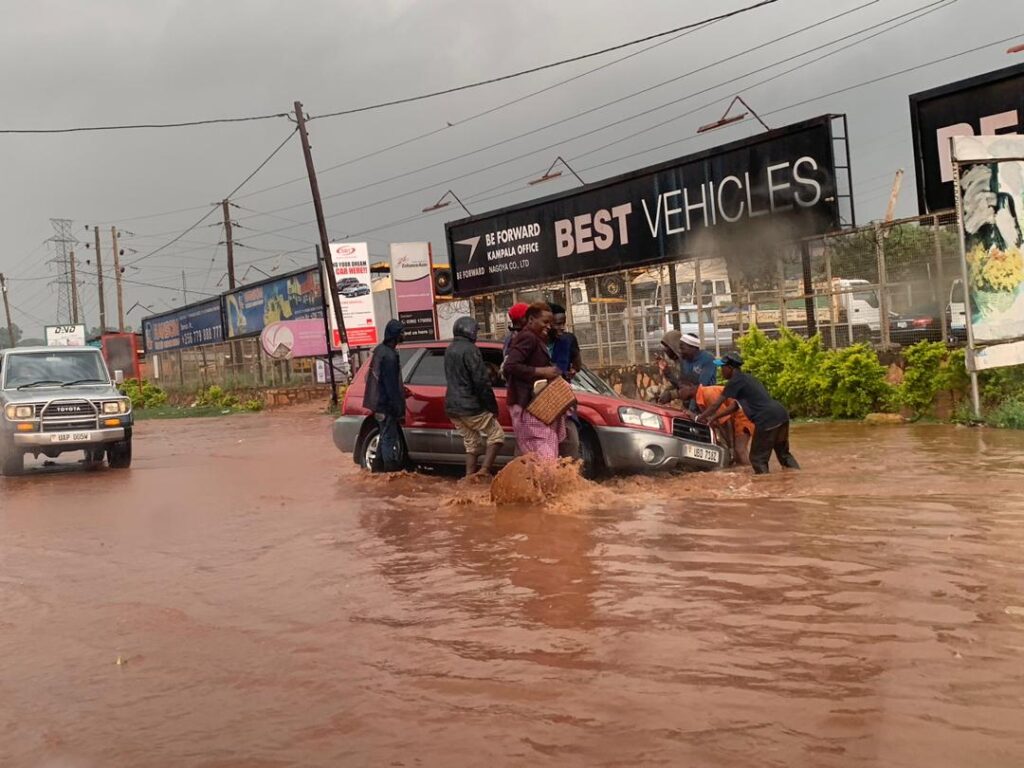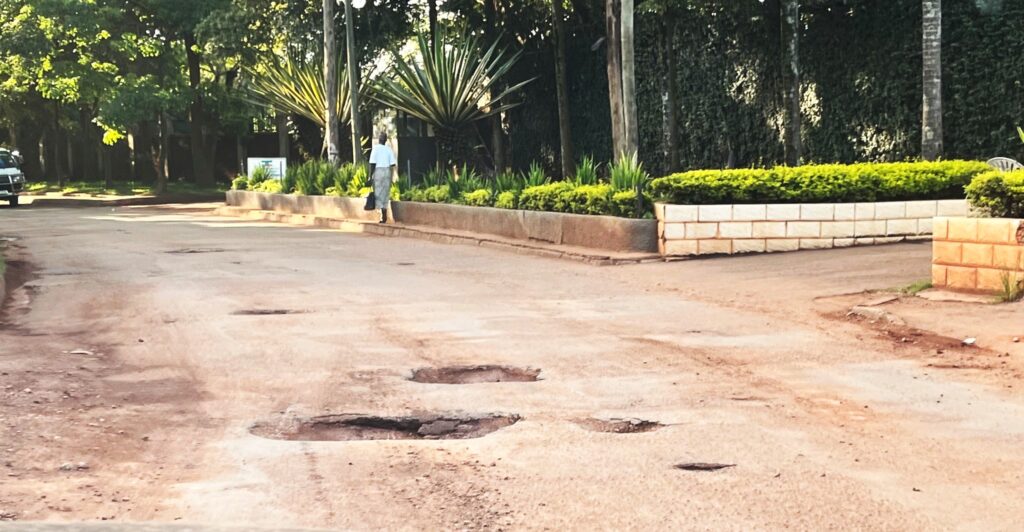Two weeks back, the night found me cruising behind a fuel tanker along the Northern Bypass—a busy ring road on the outskirts of Kampala city. The time is anywhere between 10:30pm and 11pm. Nothing out of the ordinary, until I notice the truck ahead seems to be running on a set of malfunctioning wheels. The tanker, traveling at speeds of close to 80kph, is constantly shooting fiery sparks into the air from its rear right tyres. For a minute there, I’m almost sure the rubber is about to set ablaze. This could quickly escalate into an explosive situation. Literally!
The mere thought of this causes me to swiftly move ahead at a narrow bend that has got a deep gully for a run-off area. Not the most brilliant thing to do on a highway that only gets somewhat lit when the moon is hanging in the night sky. However, in the matter of road safety, it’s important to realize that the other person’s business quickly becomes yours too, especially if you don’t fancy the idea of a loose 100kg wheel divorcing the truck and charging towards you at full speed. So, I signal the driver to bring his truck to an unceremonious stop. He’s alert enough to catch my frantic promptings, and pulls over.

Even though he stops on the wrong side—right in the middle of the fast lane—he’s got his hazard lights blinking, and goes ahead to safely carry out a quick examination of his truck which, according to him, will be thoroughly inspected at the next service station.
Whereas it’s easily the smoothest and longest stretch of paved road in Kampala, there are many incomplete sections. Additionally, poor lighting creates visibility issues as well as a comfortable environment for thugs to breed, which adds to the risk when driving there at odd hours.
Each day, hundreds of thousands all across Uganda journey from one place to the other. In this part of the world, road transport is the cheapest and more readily available mode of movement for travelers and freight. It’s for this reason that, much more than a means of accessibility, roads are a lifeline for communities, businesses and other socio-economic activities. However, due to the battered state of the roads, particularly in the city and suburbs, every trip you embark on is more of an odyssey.

In Kampala, we’ve got an infamous but compulsory sport called Dodge Hole. Every city dweller is expected to participate without fail! Oh well, it’s not like you’ve got many options, if any! This game involves driving while regularly swerving from one side of the road to the other in an often futile attempt to maneuver your way through the pothole-plagued track. Here’s a tip: at any one time, you are never more than 10 feet from a hole. There’s always one in the vicinity waiting to receive you! And it doesn’t really matter if you’re driving a truck, an SUV, an off-roader, a sedan, a train; perhaps you’re riding a bike; maybe even walking on foot—I would like to inform you that these potholes will not be doing you any favors. Every road user must feel the depth of their wrath!

In this game, you emerge winner only and only if at the end of the day your vehicle’s suspension didn’t get wrecked. Or, if you didn’t meet and greet an on-coming car, head-on. Or, if you were lucky enough not to miscalculate and plunge into a roadside trench along with the Boda-Boda rider you ploughed into. Or, all of the above!
However, things get a little more spiced up after a heavy downpour. When the low-lying or poorly-drained sections of road flood, the situation quickly regresses from dodge-hole to where-the-heck-is-the-hole? In order to safely navigate your way through what has essentially become a river-road minefield of now invisible potholes, you’ll require a sonar machine. We bless the LORD for technology! This machine will help you precisely detect, locate, and hopefully evade the gaping objects randomly scattered below the water surface. It might be a costly piece of equipment to acquire; perhaps more expensive than your car. But who told you life is cheap?
Also, if you intend to drive a small vehicle such as a Toyota Vitz, Toyota Ist or anything miniature over these flooded places, it’s important that you install a mainsail and mast on the top of your car, cos chances are more than high that you’ll be sailing away downstream. Please, I insist that you install the damn thing! In this era of expensive funerals, we don’t want to be losing you!

For driving in a straight path, you’re more-than-likely to scoop a traffic police ticket. That’s reckless driving! Nobody sane and sober is expected to drive right into every pothole ahead without due regard to their motorcar’s mechanical health. Even the police know this! Therefore, like the dignified, responsible, tax-paying, traffic-rules-abiding citizen that you are, you must occasionally weave here and there, in and out of your lane; frequently inconveniencing on-coming traffic—but that’s okay, they’ll understand and possibly do the same to you shortly. If you don’t veer, you’re the type that should be banned from using any public roads, if for anything, for blatantly refusing to participate in government programmes such as this one! And people that act like you have usually been busy indulging some illegal substances and their brain isn’t functioning optimally. I hate to break it to you my friend, but you’re about to visit the coolers for DUI—driving under the influence!
Kampala Capital City Authority (KCCA) is the entity charged with administrating the city. In theory, this should include expanding the road networks and keeping the existing ones pristine. Never mind that their jurisdiction is the entire capital—feel free to pronounce as car-pothole—of the Pearl of Africa! To all appearances, however, KCCA doesn’t seem keen on wanting to lose its notorious reputation as overseer of some of the most sophisticated urban potholes this side of the equator. The likely reason for their slothfulness is perhaps the untapped tourism potential that the holes present. Understandably so, cos these road monuments have an impeccable architectural touch like you’ve never seen!

While chatting up a friend recently, she told me she hosted guests from Sweden over the Christmas holiday, and they were amazed at—actually, I think the exact words were ‘they were totally blown away’ by—the sheer quality of craters we have here!
If, indeed, this is true, then we should cut KCCA some slack. They could very well be sourcing options for additional revenue. What better way than pothole tourism? Yah, I bet you’ve never heard of that! Believe me, there’s a lot you haven’t heard. For example, have you heard of motorists anywhere in the world getting fined an instant $1,600 for lacking a trashcan inside their car? That’s not for littering, but for driving around without a heap of trash nicely packaged in a container in your back seat! Story for another day!
If the minds at Uganda Tourism Board in partnership with KCCA had an ounce of creativity and originality, they would’ve clutched at this virgin tourism opportunity and explored what should undoubtedly be a multi-million-dollar goldmine. After all, these potholes are bespoke to us. We would certainly give the Kenya Tourism Board, next door, a run for their money, hands down!
As it stands, though, the gullies, crevasses and holes have no defined purpose. And, so, driving through Kampala remains a daily nightmare, if not a perilous one. Even the areas that are considered uptown, or the neighborhoods known to be affluent aren’t immune.

Until recently, there was a monumental crater right at the entrance to Housing Finance Bank head office on the Lower Kololo Terrace road. This one I considered to be the mother of all the upper-class potholes. It literally covered the entire two-lane section of road. Whenever it rained, a mini lake formed right at the bank’s gate. Whereas the hole got covered, the size of blemish is a testament to the attraction that once existed.
Not far from there, the patches dotting Prince Charles Drive are the hallmarks of a rugged, beat-up, scarred, and battle-hardened war General. You can tell that this road has been through thick and thin, having been constructed in the colonial era. To give you better context, that’s half-a-century ago! My guess, though, is that the reigning British monarch would likely not be flattered to learn of an ugly road named after him. Except he can’t do much about the obvious fact that they’re both advanced in age!
Driving in and around Kampala over a while, I’ve subconsciously mastered the routes with roads that are a little more bearable to drive over. This has helped me map out alternatives so as to not only avoid traffic snarl ups—cos bad roads are one of the major causes of traffic jams here—but also to limit the possibility of pothole-inflicted mechanical damage on my car. Many times I’ve rather taken the longer journey to my destination, which can even be twice as expensive sometimes, and quite unfortunate. But hopefully less costly in the long run, in as far as repairs.

Overall, if there’s something to appreciate about Ugandans, it’s that they’re the personification of tolerance. Half the population complain quietly and have learnt to take their troubles in stride, with the faint hope that someday a knight of swords will come to their rescue. The rest are simply resigned to the state of affairs, cos pleading for better roads thirty-seven years later—that’s kind of like hoping for some milk from a bull by searching for its tits!
Whether your car’s bouncing around to the weird rhythm of that mashed up 100-meter section of road at Spear, Nakawa; or you’re jumping in and out of the boggy craters on a rainy day at the confluence of 5th, 6th and 7th Street in the Industrial Area, Bugolobi; or you’re stranded inside that massive cavity on 8th Street right at the Total Energies head office—wherever you are in Kampala, you’ll agree that most of the roads are not worthy of our cars.
The least that the regime could do is place a tax exemption on vehicle spare parts. The alternative is for them to simply fix the nasty city roads, and we might actually consider not holding those wasted 37 years against them anymore. Sounds like a good offer, if you ask me! However, if the holes are intended as a tourism attraction, that too should be made clear so we know what we’re dealing with. One thing is for sure though: if you’re looking for the road to hell, it definitely has its traces somewhere in Kampala!
Follow the conversation on X:
1 Comment